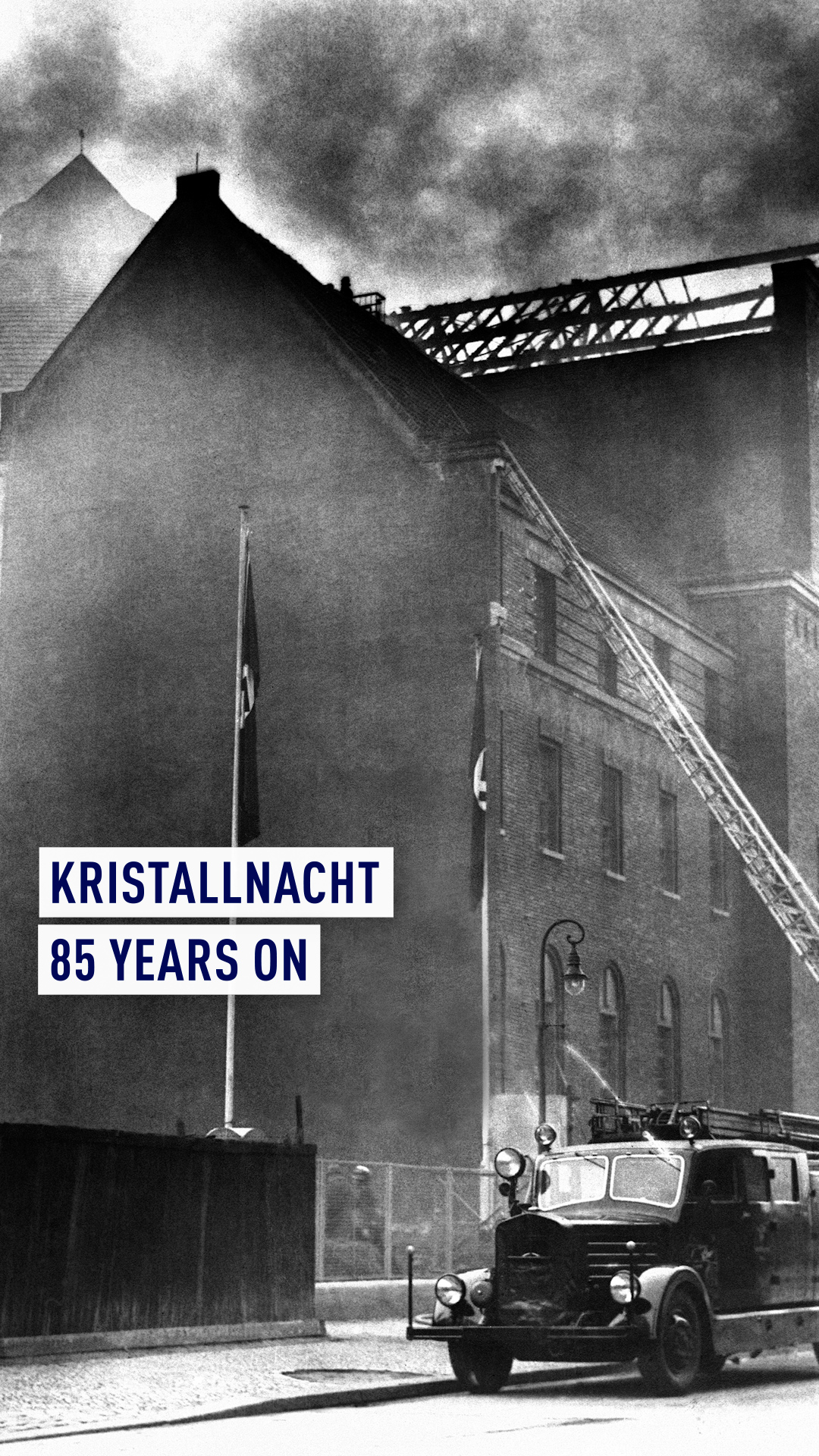01:00

Chancellor Olaf Scholz declared on Thursday that Germany was "ashamed and outraged" by recent anti-Semitic incidents across the country in the wake of the ongoing conflict between Israel and Hamas.
He was speaking at a ceremony to mark the 85th anniversary of Kristallnacht – also known as the November Pogrom and in English as the "Night of the Broken Glass."
On the night of November 9/10 in 1938, Nazi mobs destroyed around 7,500 Jewish businesses and over 1,000 synagogues and murdered at least 91 Jewish people. During the rampage, around 30,000 Jewish men and boys were arrested and taken away from their families.
Scholz was speaking in one of the synagogues that the Nazis had desecrated on Kristallnacht. Following the Hamas terror attack on October 7 and the subsequent Israeli military operation in Gaza, the German RIAS watchdog has recorded 202 anti-Semitic crimes – a 240 percent increase year-on-year; Scholz said that "every form of antisemitism poisons our society."
There has also been an upsurge in anti-Islamic attacks as Germany finds itself divided over the ongoing conflict. Scholz noted this, adding "At the same time, we must not be taken in by those who are now seeing an opportunity to deny the place of more than 5 million Muslim citizens in our society."

Scholz cleans Stumbling Stones (Stolpersteine) to commemorate Holocaust victims Hans Goslar und Ruth Judith Goslar near the chancellery in Berlin. /Henning Schacht/Bundesregierung/Handout via Reuters
Scholz cleans Stumbling Stones (Stolpersteine) to commemorate Holocaust victims Hans Goslar und Ruth Judith Goslar near the chancellery in Berlin. /Henning Schacht/Bundesregierung/Handout via Reuters
Berlin had been widely regarded as one of the top ten global Jewish sites before the Nazis came to power. In 1933, when Hitler became Chancellor – he became Fuhrer the following year – there were an estimated 160,000 Jewish people in the German capital. At the war's end in 1945, there were fewer than 1,500.
The pretext for the Kristallnacht pogrom had been the assassination of Ernst vom Rath, a Nazi diplomat in Paris, by a young German-born Polish Jew named Herschel Grynszpan. Just 17 years old when he shot Vom Rath, Grynszpan had seen his family arrested and deported in the summer of 1938 as the Nazi government expelled all Polish Jews from Germany.
The Sturmabteilung (SA) and Schutzstaffel (SS) paramilitary wings of the Nazi party used Vom Rath's death to stoke up anti-Jewish feelings. In the basement bars of central Berlin, the paramilitaries drank and seethed at the killing until they exploded onto the streets on the evening of November 9 and wracked a bloody, fiery, murderous toll on the Jewish communities across the capital.
It was a scene repeated across Germany, also in Austria and in the Sudetenland, which Nazi Germany had annexed. Kristallnacht pogroms also occurred in the free city of Danzig, modern-day Gdansk in Poland.
The broken glass of the shattered shop fronts of Jewish businesses destroyed by the mob gave the pogrom its subsequent name, Kristallnacht – which literally translates as Crystal Night – and foreshadowed the horrors of the Holocaust, in which six million Jewish people would be murdered in genocide on an industrial scale by the Nazi state.

Subscribe to Storyboard: A weekly newsletter bringing you the best of CGTN every Friday